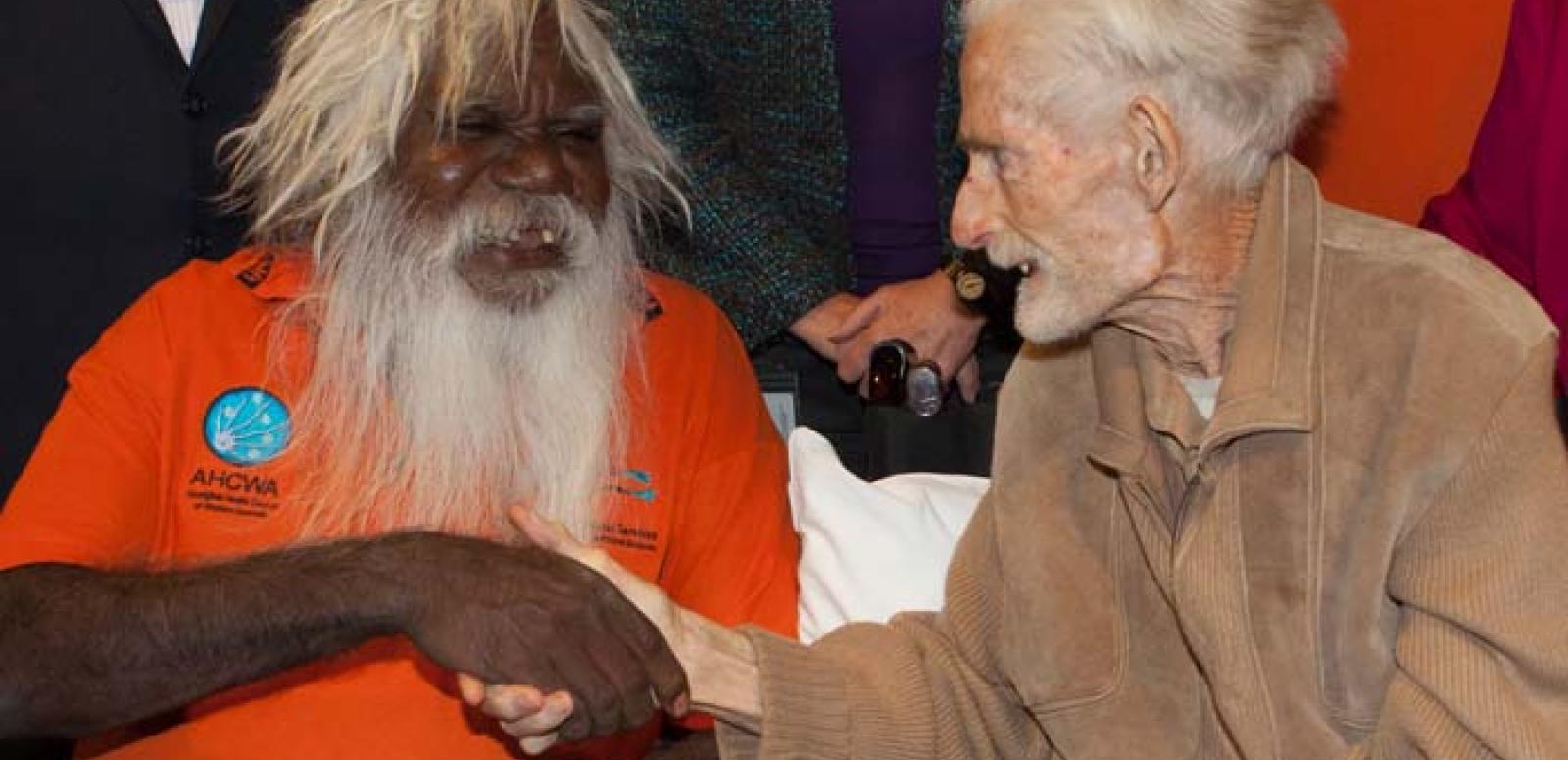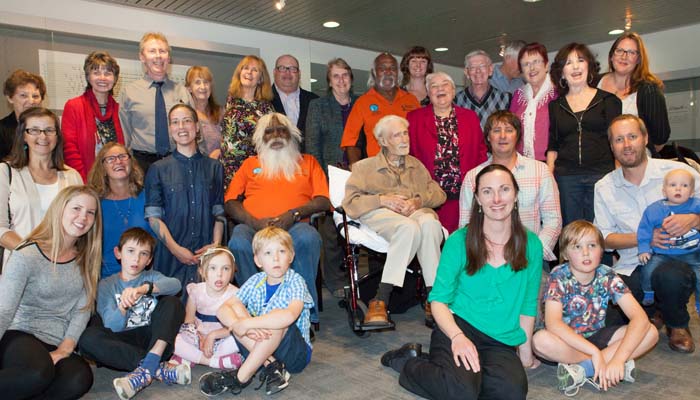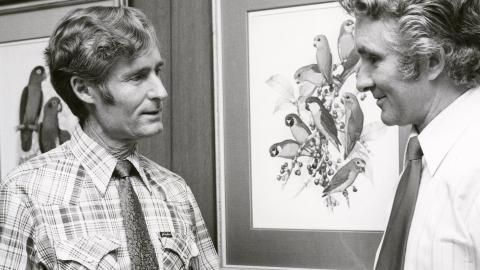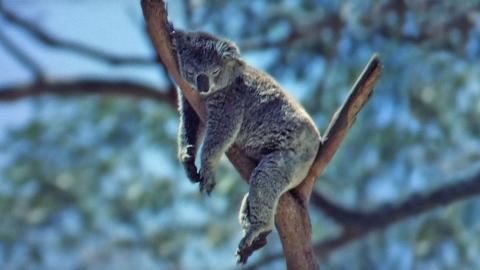

John Hutchinson's legacy of sound
Sound archivist Tessa Elieff reports from a ceremony of appreciation for WA field sound recordist John Hutchinson that took place during Reconciliation Week.
In May 2014, Peter White (Senior Manager, Indigenous Connections) and Elieff formally recognised the achievements of John Hutchinson in a ceremony of appreciation at the State Library of Western Australia (SLWA).
As part of this event, John donated copies of his rare Aboriginal music recordings to the NFSA and the SLWA. With the assistance of the NFSA, and in an act of repatriation, he also provided copies to Bruce Thomas and Alfred Baker from the Wangka Maya Pilbara Resource Centre, who are Aboriginal Elders from where the recordings originated.
The repatriated recordings of Aboriginal music are some of the first ever field recordings gathered by John Hutchinson in remote Australia. They include traditional music and ceremonies, as well as four songs by two men who had heard about 'this whitefella’ with his recording device and appeared out of the bush to ask John to record them. While John did not note their names or origins, he did capture their words in four beautiful stories: ‘Song about a snake’, ‘Love song about a boy’, ‘Love song about a girl’ and ‘Song about a didgeridoo’.

Group shot from the ceremony of appreciation, including: John Hutchinson (centre) and four generations of his family; Bruce Thomas (4th from the left, middle row); Margaret Allen, SLWACEO and State Librarian (7th from the left back row); and the NFSA’s Peter White (6th from the left, back row) and Tessa Elieff (3rd from the left, middle row).
Amongst these recordings were two contemporary pieces most likely written between 1930 and 1945.
The first of these was a song that originates from the Aboriginal people of Mulga Downs who tell of the first time they saw a truck used to transport bales of wool from the station (listen below). Before this, camels were the only means of transporting the wool bales. Most local Aboriginal people had not seen motorcars, let alone large trucks, at this time.
The second song tells the story of the Second World War bombing at Broome – specifically the attack on anchored ships that had Dutch refugee women and children on board. The men had moved on shore believing the women and children would be safer on the ships. When the bombing began they were forced to watch, shore-bound and helpless, as their families perished.
John has expressed a strong wish for there to be a complete collection of his material. With the assistance of his family members and the SLWA, the NFSA will continue to focus on finding and acquiring the remaining recordings of his that we currently do not have.
Thank you to Margaret Allen and Dr Jean Butler from the State Library of Western Australia for their generous contribution and support of the event.
The National Film and Sound Archive of Australia acknowledges Australia’s Aboriginal and Torres Strait Islander peoples as the Traditional Custodians of the land on which we work and live and gives respect to their Elders both past and present.


